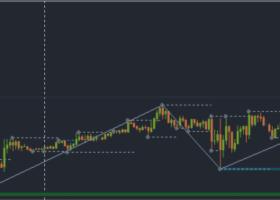Fair Value in USD/JPY – Deutsche Bank
George Saravelos, Strategist at Deutsche Bank, suggests that the Japan’s
biggest problem with the current yen rally is that it is justified by
fundamentals.
Key Quotes
“Across most of
our metrics USDJPY is still expensive or only just approaching fair
value. US–Japan real rate differentials have narrowed significantly this
year helped by Fed dovishness and the collapse of (actual and expected)
inflation in Japan. The good news is that on real rates USD/JPY is
close to fair value around 110. The bad news is that on more medium-term
frameworks USD/JPY remains significantly overvalued. Taking the average
of three Deutsche Bank valuation models (PPP, BEER, FEER), we come up
with a USD/JPY equilibrium value of 97, more than 10% below current
levels. There are two main implications of this analysis.
First,
it is unlikely that Japanese FX intervention is going to be very
successful in pushing USD/JPY significantly higher - there is no
misalignment to correct in the first place. The very public commitments
the G20 have made against competitive devaluations make large-scale,
sustained intervention even less likely.
Second, unless the BoJ
can convince the market that it is able to bring inflation expectations
back up (and real yields down) it is unclear what can be done to reverse
the yen rally. On the one hand, the market is likely to challenge the
reflationary impact of further rate cuts into negative territory. On the
other hand, an expansion of JGB purchases seems more straightforward,
but it is not clear how many more marginal JGB holders are left to
squeeze out into other (foreign) assets. In recognition of these limits
we revised our Q2 USD/JPY forecast down to 105 back in February.
Going
forward, large-scale BoJ equity purchases and renewed fiscal stimulus
may be the only near-term hope left. But if current trends persist a new
round of ground-breaking policy experimentation may be required. We are
exceptionally focused on the Japanese reaction to what is happening
this year, because it is likely to foreshadow the market’s perception of
the next round of policy innovation by global central banks.”
(Market News Provided by FXstreet)



